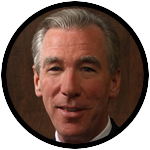
John Garvey
Stephen Hawking died last month. He was a brilliant and influential physicist responsible for, among other things, the conclusion that black holes emit energy that we now call “Hawking radiation.”
This is not supposed to happen, because the gravity of black holes is so strong that it doesn’t even allow light to escape. (That’s why they’re black.) And it creates some problems for quantum mechanics that we still have not solved.
In his later years, Hawking attracted a lot of attention for his speculations about how the universe began. Though an avowed atheist, he was for 32 years a member of the Pontifical Academy of Sciences. On many points of cosmology, he agreed with more faithful members of the academy.
He believed, for example, as most physicists now do, that the universe began in a stupendous Big Bang about 14 billion years ago. The Big Bang theory was first proposed by a Catholic priest, George Lemaitre, elected to the Pontifical Academy 50 years before Hawking. Hawking also believed, as Lemaitre proposed and Edwin Hubble demonstrated, that the universe is still expanding from this initial event.
[hotblock]
Physics doesn’t, and probably can’t, tell us what caused the Big Bang. This is the point on which Hawking and the church part company.
Like many scientists, Hawking was a positivist, interested in explaining everything by relying on sensory experience and reason. According to the rules of this game, we are not allowed to appeal to forces or actors outside this closed system. He proposed that the universe came into being by a random quantum fluctuation, something like the way bubbles of steam form and expand in boiling water.
But, you might fairly ask, fluctuation in what? Where does the boiling water (in this analogy), or the primeval atom (the bubble), come from? What was there before the fluctuation?
Hawking proposed to answer this question from within his closed system as well. Don’t think of time like a model railway track, he said, with someone at the beginning to set the trains going. Rather, think of time like a globe, and the beginning of the universe like the South Pole. To ask what is south of the South Pole is a meaningless question.
Science and religious belief must be consistent, but they are different disciplines. Anglican Archbishop James Ussher, primate of all-Ireland in the 17th century, once calculated from Old Testament chronologies that the world began on Oct. 23, 4004 B.C. This is probably not right.
The ages and generations in the Bible accounts are likely symbolic, not literal. On the other hand, Lemaitre wisely warned Pope Pius XII against opining in public that the Big Bang proved the truth of Catholic faith. Physics can’t observe and test the action of God.
Neither can science make God unnecessary, as Hawking once claimed it does. At least not if we are interested in finding an answer to the question Gottfried Wilhelm von Leibniz famously asked: “Why is there something rather than nothing?” Hawking’s answer (it’s random) is not very satisfying, especially to the scientific mind.
We would all do well to observe the limitations of our disciplines in making claims about what we can prove. Hawking was playing a game that did not allow us to speak about God, and there’s nothing wrong with that. But there are important questions that lie outside the physical sciences, and despite his enormous contributions, he didn’t provide much help in answering those.
***
Garvey is president of The Catholic University of America in Washington. Catholic University’s website is www.cua.edu.
PREVIOUS: What I learned at the presynod gathering
NEXT: Encyclical draws connections to coherent opposition to abortion



Share this story